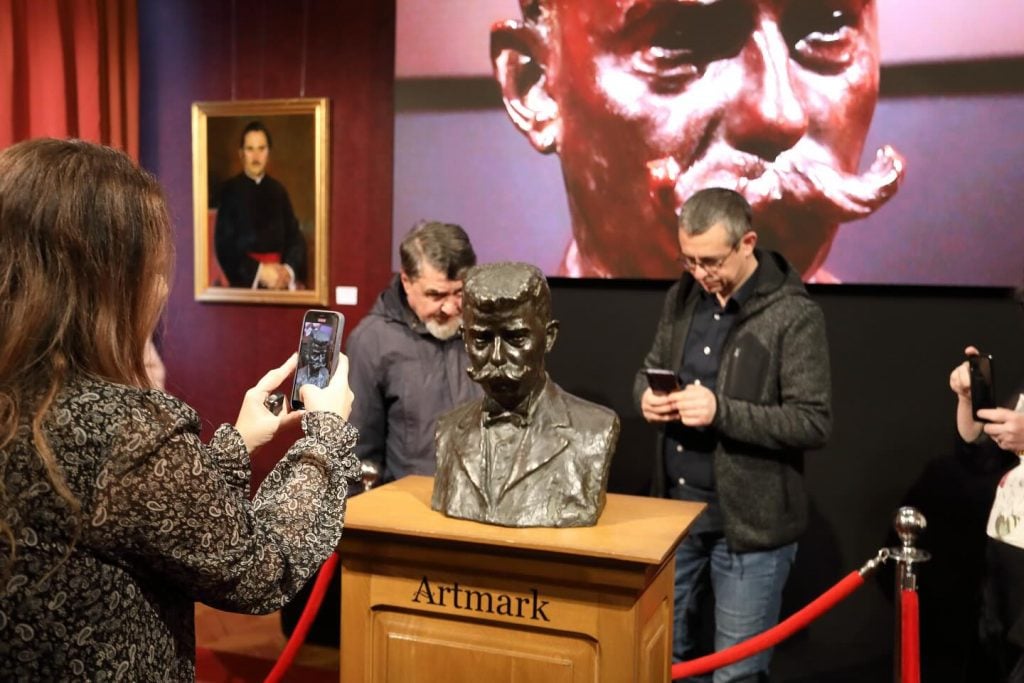On View
A Long Lost Brancusi Goes on View in Bucharest
The bust depicts a restaurant waiter that the artist met while working as a dishwasher shortly after moving to Paris.

The bust depicts a restaurant waiter that the artist met while working as a dishwasher shortly after moving to Paris.

Jo Lawson-Tancred

An early portrait bust by the avant-garde sculptor Constantin Brancusi that was believed to have been destroyed is now on display at Artmark auction house until February 25.
The Romanian-French sculptor is celebrated for his stylized pieces like Mademoiselle Pogany (1910-11) or abstract works like Bird in Space (1928) or Endless Column (1938). Earlier in his career, however he produced more traditional sculptures. Portrait of Achille Baldé (1905-6) was made when Brancusi was about 30 years old and had only recently arrived in Paris, where he studied at the École des Beaux-Arts.
At this time he was still casting rather than carving his sculptures and was stylistically influenced by Auguste Rodin, but Brancusi was on the precipice of radically rethinking his approach and changing the course of modernist sculpture forever. Some of his very first works that paved the way for his highly original, more simplified style were The Prayer (1907) and The Kiss (1908).
Whereas Rodin is famous for portrayals of influential thinkers like Anna Noaille and Balzac, Brancusi’s subject Baldé was a waiter at Bouillon Chartier, the same restaurant where Brancusi had worked as a dishwasher when he first moved to Paris.
The bust was eventually passed down to Baldé’s descendants, although records on it disappeared and art historians assumed it had been lost. They knew of it only through archival photographs of Brancusi’s Dauphine Square studio where it appears as a plaster model. The rare artwork is signed by the artist.
It was rediscovered when it appeared at the Paris auction house Drouot last year. The rare find was snapped up by a Romanian collector for €377,000 ($406,000).
“This bust was probably left in the family from generation to generation, and they didn’t know the author’s value,” suggested art historian Doina Lemny, who spoke at the statue’s unveiling on February 17. “It was believed that the work had been destroyed by Brancusi.”
She added that there is also another missing bust portrait from the same period of Brancusi himself, which may yet resurface.
“Brâncusi Exclusiv” is at Artmark’s headquarters at Cesianu-Racovita Palace in Bucharest, Romania, until February 25. There is no sale planned for the work at this time.